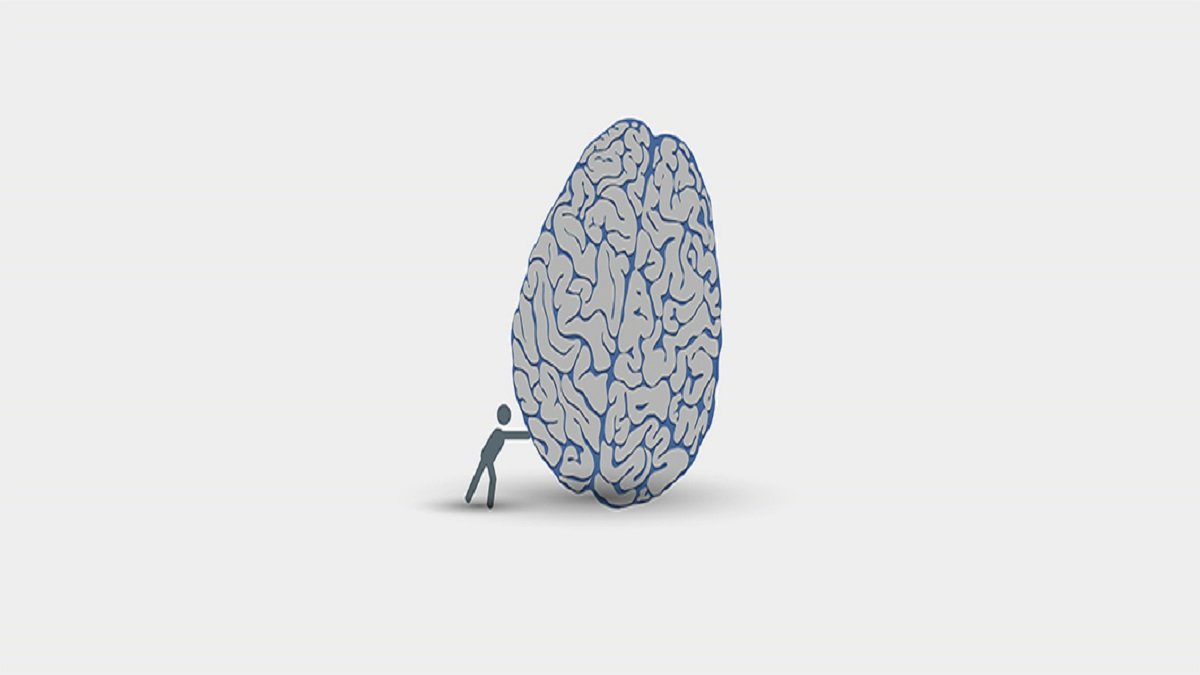Our ability to withstand pressure, stress, and difficulties in any situation is characterized by our mental toughness. It’s about having the fortitude to persevere through trying times and standing tall in the face of misfortune. There are Ways to Develop Mental Toughness.
Mental toughness may support us in meeting obstacles head-on when they arise. Mental toughness is what enables us to weather difficult situations in our personal or professional lives as well as the ups and downs of day-to-day living. To survive and keep a good attitude in the face of hardship, mental toughness may be based on a few essential traits that anybody can cultivate and hone over time.
Tips For Developing Mental Toughness

1. Always Focus on the Positive
Focusing on the positive is one of the Ways to Develop Mental Toughness. There is much more to mental resilience than just clenching your teeth in difficult situations. It’s also about finding solutions to those problems and welcoming challenges with an optimistic outlook. Developing your positive mantra is one approach to practice seeing the good things in life.
Perhaps you like the catchphrases of Peloton teacher Christine D’Ercole, “I am, I can, I will, I do,” or of instructor Jess Sims, “You don’t have to, you get to.” Alternatively, maybe you have a unique internal affirmation! Practice saying your motivational phrases to yourself when you’re feeling down.
Repeated mantras have been shown in Brain Behavior research to have a soothing impact on brain activity. Translation: When you’re under pressure, repeating positive affirmations might help you relax and maintain your composure.
2. Never Lose Sight Of Your Goal
The best indicator of success is having a clear understanding of what we desire. Nevertheless, a lot of us lack clarity in this regard. According to psychologist and motivation scientist Heidi Halvorson, we can stay realistic, persistent, and resilient towards long-term goals by putting our desires in writing, visualizing them in our minds, and planning the steps necessary to craft our journey and overcome the challenges along the way.
If not, we have unrealistic expectations for the outcomes we want right away and quit when we encounter obstacles and temporary diversion, which are inevitable in every endeavor.
3. Develop A Growth Mindset
Cultivating a growth mindset can be an answer to How to Build Mental Strength. Building mental toughness requires a development attitude. The idea that aptitude and intellect are not intrinsic is known as a development mindset. Alternatively, they may be obtained with commitment and diligence.
It’s understood that mistakes and setbacks are opportunities for development and learning rather than a dead end. Resilience may be fostered, and obstacles can be turned into opportunities by cultivating a growth attitude.
4. Try New Things
The idea that doing something new might boost confidence may seem paradoxical. You won’t be an expert at anything the first time you attempt it, after all. Attempting something completely new, nevertheless, might boost your self-confidence in your capacity to manage challenging circumstances.
Learning new abilities contributes to the development of a feeling of competence and mastery. This paradigm argues that a person’s talents aren’t permanent or set in stone. Rather, intellect and abilities may be acquired with perseverance and hard effort.
Furthermore, a person who has a growth mindset will see disappointments as chances for personal development rather than as clear failures or, worse, as indications of their unworthiness. Therefore, setting a goal for yourself to learn to play the piano or attempt a dance fitness class for the first time can help you develop mental resilience.
5. Celebrate Your Successes
Celebrating your successes, regardless of their size is one of the Ways to Develop Mental Toughness. The human brain has developed to detect dangers to its existence. Because of this, pessimism and failures get deeply ingrained in our memories, making it harder for us to escape such tragedies in the future.
However, in a society where actual risk is far lower than it was during the hunter-gatherer period, our focus on the bad might cause us to lose sight of our own goodness and positive traits. We need to take some time to reflect on and savor wonderful events again in our thoughts for our kindness, efforts, and triumphs to get ingrained in our long-term memory and give us the confidence to pursue our objectives.
6. Think Yourself To Be In Control
“Act as if all is up to you; pray as if God will take care of everything” is a phrase that is often attributed to Ignatius (That quote is very awesome). Regarding luck, the same principle holds. A lot of individuals believe that success or failure is mostly determined by chance. If they were successful, fortune was on their side; if not, it was against them.
Most prosperous individuals believe that some degree of chance contributed to their success. However, they don’t wait for luck to favor them or fret about misfortune. They behave as if they have complete control over success or failure. They cause it if they are successful.
You may focus all of your mental energy on bringing about the things you want to happen instead of squandering it and worrying about what could happen to you. (And hey, you’re even better off if you get fortunate after that.) Although you have no control over what fortune does for you, you do have power over what you do for yourself.
7. Speak Positively to Yourself
Even though self-talk is mostly subconscious, it is nonetheless quite potent. Similar to how our inner critic might berate us for failing, it can also dissuade us from moving on with our objectives.
We often find ourselves thinking things like, “C’mon, there’s no way you can do this,” “Look at her, he’s way better,” and “Seriously, let go before you make a fool of yourself” when we’re ready to tackle anything significant. To bring our whole selves to life, we must never forget that self-doubt is the ego’s weapon and that we should praise ourselves for being prepared to take measured risks even in the face of potential momentary failure.
8. Consider Past As A Valuable Lesson
Seeing the past as a valuable lesson is an answer to How to Build Mental Strength. The past has value. Acquire knowledge from your errors. Take lessons from other people’s errors. Then release it.
Said to be easier than done? Depending on how you look at it. When something unfortunate occurs, see it as a chance to discover something new. Don’t only take the error as a teaching moment; instead, use it as a chance to show kindness, forgiveness, and understanding to others.
The past does not define you; it is just a tool for instruction. Consider the things that went wrong, but solely from the perspective of how you and others around you can ensure that things go properly the next time.
9. Don’t Try to Impress Others
Nobody loves you because of your title, achievements, belongings, automobile, or attire. All of them are objects. Even if someone likes what you do, it doesn’t always indicate they like you. (Yes, they may seem to enjoy you on the surface, but superficiality is also insubstantial, and a connection devoid of substance isn’t a partnership.)
You can only establish true connections when you stop trying to impress others and start attempting to simply be yourself. Sincere relationships make you happy. Additionally, you’ll have a lot more mental energy to dedicate to the people in your life who matter.
Benefits Of Mental Toughness
Your life may be improved by following Ways to Develop Mental Toughness and psychologically durable abilities, such as increasing motivation and being more adaptive.
Heightened Drive: An inner drive that keeps you going ahead even in trying situations may be brought about by mental fortitude. This drive may support your goal-committing behavior by encouraging you to keep trying, growing, and persevering.
Reduced Anxiety And Improved Stress Handling: When you have mental fortitude, unpleasant conditions don’t overwhelm you; instead, they make tasks seem doable. By changing your viewpoint, you may lessen the overall negative effects of stress on your physical and mental well-being and address issues with more composure and clarity.
Adaptability And Versatility: Mental toughness improves your capacity to adjust to unforeseen changes with greater originality and adaptability in your answers, which better prepares you to deal with novel circumstances and surroundings.
Perseverance In The Face Of Adversity: The bravery it offers in the face of difficulties is one of the most notable advantages of mental toughness. Mental toughness may provide you with the ability to actively deal with life’s challenges, whether they are personal, professional, or unforeseen.
Enhanced Performance: Mental toughness may assist retain concentration, determination, and tenacity, which can lead to greater success in the business, in sports, or in personal endeavors.
FAQ
Q: Can one learn to be mentally tough?
A: While developing mental toughness often just happens as a result of contextual factors, teaching mental toughness is a conscious effort to develop certain mental abilities (such as goal setting, relaxation, and attention).
Q: How does performance relate to mental toughness?
A: According to one study, athletes with higher mental toughness scores also performed better, made more progress towards their objectives, had less stress, had better coping mechanisms, and engaged in more introspection. Additionally, confidence, self-control, and optimistic thinking were enhanced by mental toughness.
Q: Is mental toughness a talent?
A: Put an end to that way of thinking and direct your attention towards something that gives you a sense of peace, self-assurance, and control. Mental toughness is a multifaceted skill set. In addition, mental toughness is something you have to train for.










